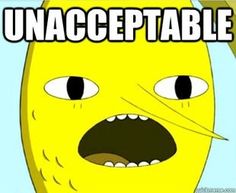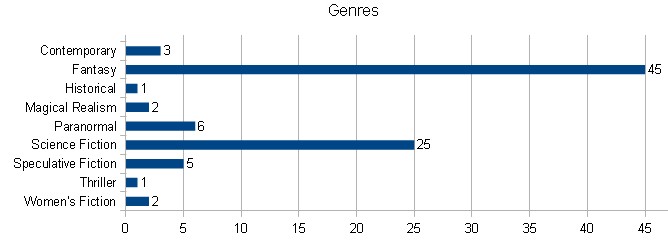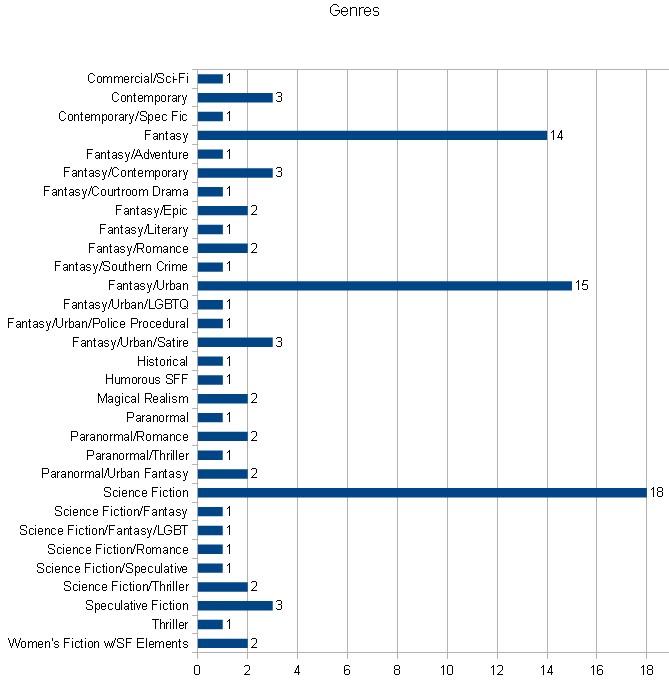Hey!
So you Pitch Wars folks may have heard I’m a grumpy editor and that I will be grading your papers–excuse me, your manuscripts–extra hard on silly things like spelling, grammar, punctuation, and word use.
Well, you heard right.
I don’t really want to spend this post rambling about the importance of a polished manuscript, so if you want to read my philosophy on the topic–which could be summed up as “please don’t make me be your literary janitor”–I have already written a post on that. But one major reason you want your manuscript to avoid certain common errors is that doing so makes us feel like we’re in good hands.
Ahh, we think when our internal editor can go to sleep and just enjoy the story. Finally. Someone who knows what they’re doing. That’s it, really. I want to feel that sense of confidence, like I’m dealing with a professional. For that reason–and because I would love to work with a mentee in Pitch Wars who will allow me to give my red pen a rest–I am now going to lay out the most common glitches I find myself yelling at people about over and over again during editing.
You may be surprised what you don’t know. Trust me here.
1. Extra spaces.
The standard now is ONE space after terminal punctuation. If you currently have a manuscript featuring two spaces after sentences, you’ll need to globally replace every set of two spaces with one space. You don’t want to look outdated/old-fashioned. I also often find two spaces between regular words, or even more than two spaces, so I recommend a good old automatic search-and-replace.
2. Mixture of straight quotes and curly quotes.
Nearly every manuscript I’ve edited has this problem and I don’t know why, but this formatting inconsistency is usually a consequence of editing in more than one program. (I’ve heard conversion to Word from Scrivener sometimes causes this if you then start editing inside Word after the conversion, for instance.) You should do a final once-over to make sure your quotes are all curly or all straight. Inconsistency looks sloppy and we can see what parts you’ve been messing with. You need to be especially careful about apostrophes; sometimes they flip the wrong way if they’re curly, and apostrophes should look like a tiny nine, not a tiny six.
3. Inappropriate use of single quotes.
US standards and UK/Australian standards are sometimes different on punctuation, and this is one of those times. But since I am US-based, I am explaining the US rule. Dialogue should be in double quotation marks. Quotations should be in double quotation marks. Scare quotes are also double quotation marks. Single quotation marks rarely make an appearance except inside doubles (to indicate something quoted inside something else that’s being quoted). I’m not sure why it’s so common for authors to use single quotes like my example above, but you shouldn’t.
4. Inappropriate dialogue rendering.
Dialogue appears to be one of the world’s last great mysteries to some folks. I see quoted text blending into stage direction that’s handled like a speech tag; I see commas used after question marks and exclamation marks; I even see people forgetting their commas before speech tags or using the wrong capitalization/punctuation for attaching speech tags. Bottom line is that you should end your dialogue with terminal punctuation inside the quotation marks unless the sentence continues outside the quotation marks to attach a dialogue tag, and if what follows after the comma is NOT a dialogue tag, it needs to be converted to the proper verb form before you add it on there. (For instance, in the first example in the graphic above, you’d write “Just don’t,” she said, walking away scowling, or “Just don’t.” She walked away scowling, or “Just don’t,” she said as she walked away scowling.
5. Improper rendering of ellipses.
Ellipses baffle many. That’s probably partly because three dots looks right and four looks like too many, and partly because there is a special character to create ellipses that converts automatically in some programs. Well, the Chicago Manual of Style is a common style guide for many editors and publishers, and these days it recommends spaces before, between, and after a set of three periods to indicate a pause–unless it is at the end of a sentence, in which case you get a fourth period that ends the sentence (flush against the sentence it ends, just like a regular period), followed by the spaced-out periods. It’s also not three periods followed by one space, which I also see a lot.
6. Improper rendering of dashes.
Dashes! Ask anyone who’s ever received editing from me: I harass people mercilessly over dashes. Turns out people don’t know there are different punctuation marks for different types of pauses, and many authors don’t know the difference between the hyphen, the en dash, and the em dash.
The key:
( – ) Hyphen (shortest!): Used for connecting related words, like short-haired and dust-covered. Or for number words like forty-two. It is not used for a pause in a sentence. Created using the hyphen key on the keyboard.
( – ) En dash (medium!): Used for certain rare, peculiar hyphenations that involve connecting a two-or-more-word phrase to another word, like Michael Jackson–themed or yellow jasmine–scented. It is also used for ranges, like scores (“they beat us 27–6!”) or in substitution of the word “to” (“the Canada–United States border”). Created using alt-0150 on the keypad.
( — ) Em dash (longest!): Used to indicate interruption or pause in a sentence. You can use it to indicate that someone’s dialogue is getting cut off (“But you said I could if I—”) or to set off separate phrases or asides inside a sentence (The clown—still wearing his red nose—sighed deeply) or to add another idea to an existing one (Sometimes I think about dropping out—it’d be a relief, really). Created using alt-0151 on the keyboard.
The em dash is also sometimes indicated by two hyphens next to each other ( — ). If you are formatting your manuscript without the special dash character (which sometimes is converted automatically to a special dash character if you type two hyphens), you should not include spaces before, between, or after the dashes.
Please don’t make me yell at you over your dashes.
7. Comma splices.
Ever heard of comma splices? I used to have all kinds of comma splices in my writing until I found out they were a no-no. Comma splices can be hard to explain–both what they are and why they’re unacceptable–but once you get the idea of what they are, they start to jump out at you everywhere. Comma splices are essentially when a comma is used to join two parts of a sentence that should be more independent from each other. They usually need a stronger separation–such as a period, a dash, or a semicolon. The example above could be fixed with a semicolon or a period, just depending on stylistic preference. I tend to see comma splices more often in sentences that are already quite long, with several of them in a row. Look up comma splices online to figure out what they look like if it’s not clear to you already, and then kill them all.
8. Unnecessary, “creative,” or adverb-infested dialogue tags.
Dialogue tags are one of the most frequently decorated parts of an amateur writer’s manuscript. One good rule of thumb is to avoid telling us how someone said something if what they said already made it clear. You don’t need to find a flashy word like roared or expectorated if the tone is already obvious just from reading the quote, and if someone says something pleasant and well-mannered, you don’t have to add “she said politely.” Give us adverbs or clarifying permutations for the word “said” or “asked” if something about it is not clear from the dialogue itself, like if the phrase is whispered and we wouldn’t otherwise know, or if it’s said sarcastically (provided we can’t tell already from context).
I think the main reason people think these gaudy tricks are good writing is that they imagine variation makes their sentences more attractive and innovative, but all it really shows is that they don’t know the purpose of dialogue tags. Think of your writing as a road and your plot as a series of tourist attractions. Your job as you lay out the road is to guide your drivers to the attractions; the storytelling is the highway, and the stage directions and dialogue tags are instructions for traveling it correctly. You want the roadside signs to guide the drivers, not become pretty enough that they’re mistaken for attractions themselves. Their job is to guide the driver and get out of the way–to be as invisible as they can be while still being understood.
9. Inconsistent usage.
Inconsistent usage is tough to nail down because every writer has different problem spots, but I see it often in stuff like “toward” and “towards” both being used in the same manuscript (you should pick one and use it consistently, “toward” being more commonly accepted, and the only exception is dialogue). Usually I’ll see this with authors sometimes capitalizing a person’s title and sometimes not; or spelling, hyphenating, or capitalizing special terms made up for the story differently each time.
10. Extraneous phrases and words.
Extraneous words are clutter. They jumble your sentences, make them more awkward to read, and can even slow down your pacing. “She wondered if she’d ever see another thunderstorm” is way more effective than “She found herself beginning to wonder whether or not there was ever going to be another thunderstorm.” Not only is the former around half the length of the latter, but it’s so much more readable and effective.
Watch for unnecessary words and phrases like started to, began to, and in order to. Avoid phrases that are redundant, like whether or not (just whether works) or thought to herself (unless the character’s speaking telepathically, they are most likely always going to be thinking “to themselves”). Cut unnecessary uses of the word that. Avoid using really, quite, and very if they’re not necessary (and this is where creative word swaps do come in handy; I’d rather see “enormous” than “very big”). And try to avoid the word thing (except in dialogue) if you can think of a more specific word that describes what thing.
I can deal  with a few writing quirks and mistakes here and there. I’m good at helping authors identify their language problems, and I’m sure whoever I choose for my mentee will have a couple glitches I can help them with. (For the record, ending sentences with prepositions is accepted usage in informal writing, and starting sentences with coordinating conjunctions is similarly fine. These are not the types of petty problems I scream about.) However, I would prefer to work with someone who won’t make me feel like I’m grading an English paper or watching out for mistakes all the time. Learn these common problems, excise them from your book, and help keep all of my hair in my head.
with a few writing quirks and mistakes here and there. I’m good at helping authors identify their language problems, and I’m sure whoever I choose for my mentee will have a couple glitches I can help them with. (For the record, ending sentences with prepositions is accepted usage in informal writing, and starting sentences with coordinating conjunctions is similarly fine. These are not the types of petty problems I scream about.) However, I would prefer to work with someone who won’t make me feel like I’m grading an English paper or watching out for mistakes all the time. Learn these common problems, excise them from your book, and help keep all of my hair in my head.
And for those of you who will still insist on committing these sins . . . be prepared to feel the sting of my mighty red pen.






























